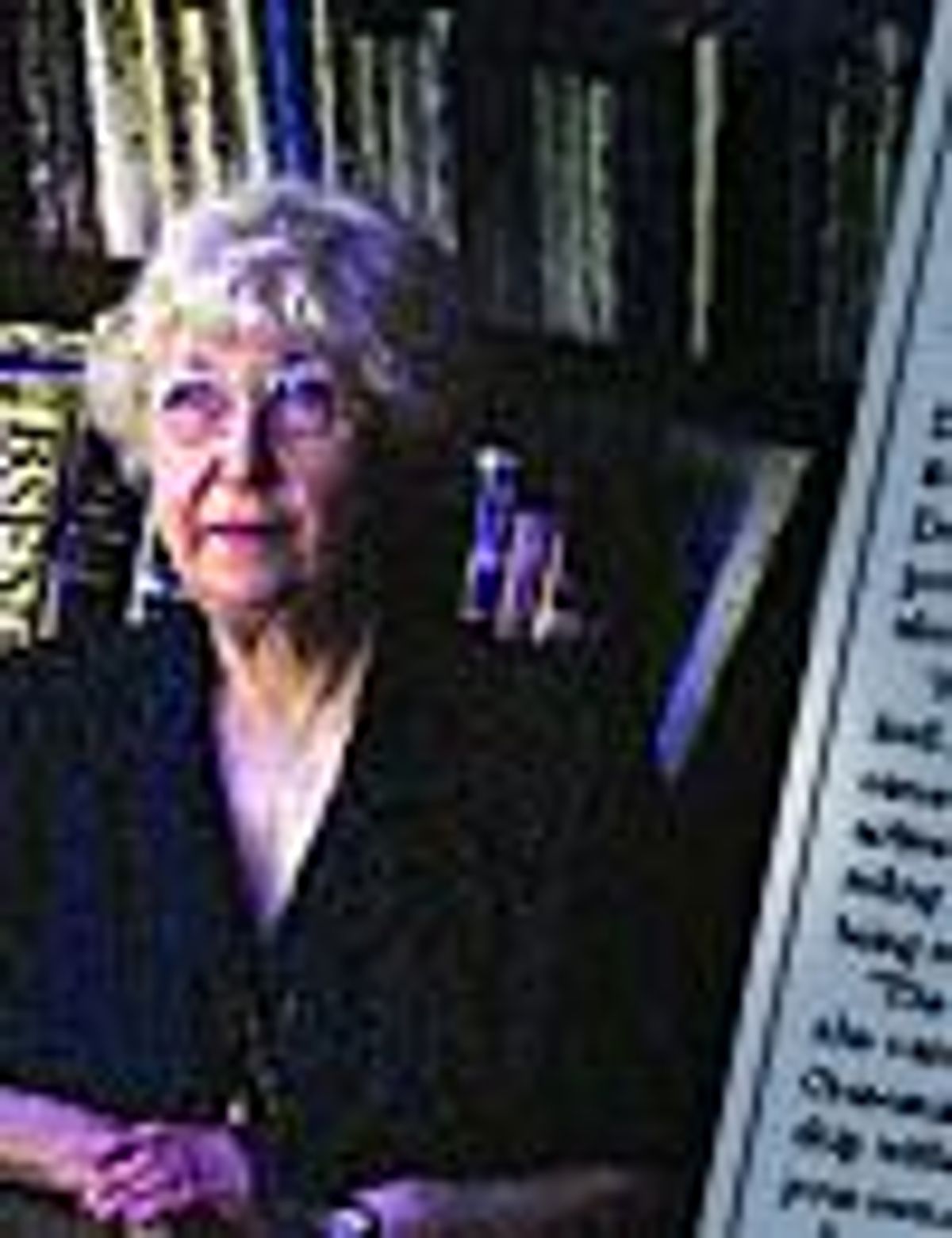F or more than
three decades a deeply admired advocate for stable
relationships and sound mental health care for gays and
lesbians, psychotherapist and author Betty Berzon has
left an immense legacy in the wake of her death
January 24 at age 78.
From her therapy
patients to readers of her successful books on
self-esteem and coupling, many are mourning Berzon's
death from cancer, none more so than her partner of 33
years, Terry DeCrescenzo, who was with Berzon when she
passed away at their Los Angeles home.
DeCrescenzo
remembers when her partner was first diagnosed with cancer
in 1986. Though Berzon would undergo a mastectomy, her
physician put her prognosis for survival at just two
years. "Betty said, 'Bring it
on,' " DeCrescenzo recalls.
Born in St.
Louis, Berzon attended Stanford University in the late 1940s
but dropped out after a female dorm mate tried to seduce
her. She was still deeply closeted when she moved to
Los Angeles in 1950. After opening a short-lived
bookstore in the city, Berzon received her
bachelor's degree in psychology in 1957 from the
University of California, Los Angeles, rubbing
shoulders with esteemed psychologists such as Evelyn
Hooker, who later became instrumental in declassifying
homosexuality as a mental illness.
Berzon received a
master's degree in psychology from San Diego State
University in 1962 before being hired at the newly founded
Western Behavioral Sciences Institute in La Jolla,
Calif. During the next few years Berzon made a name
for herself by espousing the benefits of group therapy
and by speaking publicly about the human potential movement.
When
Berzon's 40th birthday rolled around in 1968, she
realized she couldn't deny her attraction to
women any longer; she came out as a lesbian, moved
back to Los Angeles, and became active in the growing gay
liberation movement. She began counseling gay and lesbian
patients exclusively, with her specialty being male
couples.
"The most
important thing Betty did was to help people when she came
out as the first openly gay psychotherapist,"
DeCrescenzo says. "Betty always said,
'You can't go into a relationship without
having reconciled your own self-esteem issues and your
own embarrassment about being
gay.' "
In 1971, Berzon
began serving as a peer counselor at a new gay community
organization, helping to found what was to become the Los
Angeles Gay and Lesbian Center, now the
nation's largest gay and lesbian service agency.
She soon became the first woman on the center's board
of directors.
Berzon also
cofounded the Southern California Women for Understanding, a
nonprofit lesbian organization still in operation, in 1976,
and served on the board of directors of the
Whitman-Radclyffe Foundation, a gay and lesbian drug
and alcohol recovery center in San Francisco.
Berzon's influence was also felt in her roles
as president of the Gay Academic Union and board
member for National Gay Rights Advocates.
By the end of the
1970s, Berzon had earned her doctorate in psychology at
Los Angeles's International College, and her writing
had brought her national recognition. She served as
coeditor of 1979's Positively Gay: New
Approaches to Gay and Lesbian Life, which has remained
continuously in print and was expanded, updated, and
revised in 2001.
Her best-selling
Permanent Partners: Building Gay and Lesbian
Relationships That Last, published in 1988, was one of the
first books to advise gay couples on issues such as
finances, legal difficulties, and having children. Her
other works include The Intimacy Dance: A Guide to
Long-term Success in Gay and Lesbian Relationships and
Setting Them Straight: You CAN Do Something About
Bigotry and Homophobia in Your Life.
Berzon wrote of
her own dramatic struggle with self-hatred and denial in
her Lambda Literary Award-winning 2002 autobiography,
Surviving Madness: A Therapist's Own
Story.
While
Berzon's books are as popular as ever (a novel titled
Queer Babies is expected to be published
posthumously), it may be her personal work with
clients that leaves the most indelible mark.
"If we
hadn't seen Betty, we probably wouldn't even
be together," says Marty Lingg, who with his
partner, Joe Ramirez, sought out Berzon's
therapy expertise in the mid '90s. "One of the
biggest things that happened [to us] is that
31/2 years ago we decided to have a baby. We
know, without a shadow of a doubt, if we hadn't been
in touch with Betty, it never would have happened; I
never would have felt confident in myself or my
relationship to take such a major step. We did end up
adopting, and we're very thankful."



















































































